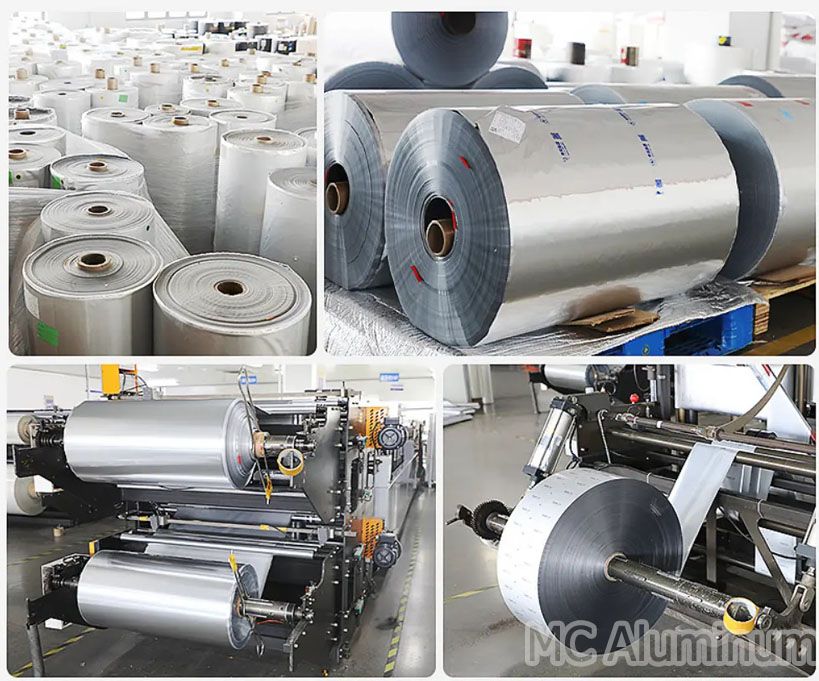Composite aluminum foil for pharmaceutical packaging is a high-performance packaging material designed for pharmaceutical protection, and is widely used in the packaging of products such as tablets, capsules, and granules. Its main function is to protect pharmaceuticals from the influence of the external environment (such as light, moisture, gas, and pollutants), thereby extending the shelf life of pharmaceuticals and ensuring their efficacy.
Composite aluminum foil is a composite material made of aluminum foil and other materials (such as plastic film, paper, etc.) through a composite process. Common aluminum foil materials include 8011 aluminum foil, 8021 aluminum foil, 8079 aluminum foil, etc.
Composite aluminum foil for pharmaceutical packaging is usually a multi-layer composite material, and the typical structure is as follows:
Outer layer material (such as PET or BOPP): provides mechanical strength and printability.
Aluminum foil layer: As the main barrier layer, it has good moisture, oxygen and light resistance.
Inner layer material (such as PE, PP or PVC): in direct contact with the pharmaceutical to ensure safety and heat sealing performance.
Adhesive layer: connects the various layers of material to ensure the overall composite firmness.

Characteristics of composite aluminum foil for pharmaceutical packaging materials:
1. Barrier property: Aluminum foil has a highly dense metal crystal structure, which can effectively isolate air, moisture and light, and prevent drugs from being damaged by the external environment.
2. Moisture resistance: Aluminum foil has excellent moisture resistance, which can ensure that drugs remain dry in a humid environment.
3. Anti-oxidation property: Aluminum foil can prevent drugs from contacting oxygen in the air, thereby preventing drugs from oxidation and deterioration.
4. Light blocking property: Aluminum foil has good light blocking property, which can protect light-sensitive drugs from the influence of light.
5. Corrosion resistance: Aluminum foil can maintain stable performance in various environments and is not easily corroded.
6. Hygiene and safety: It meets the hygiene standards of pharmaceutical packaging and does not contain harmful substances.
Application:
1. Solid drug packaging: Composite aluminum foil is often used for the packaging of solid drugs such as tablets and capsules, which can effectively prevent drugs from moisture, oxidation and contamination.
2. Liquid drug packaging: Through the use of a special composite process, composite aluminum foil can achieve good sealing and barrier properties to ensure the stability of liquid drugs during storage and transportation.
3. Special drug packaging: For some drugs that need to be stored away from light or are volatile and need to be kept dry, composite aluminum foil can also provide an effective packaging solution.
